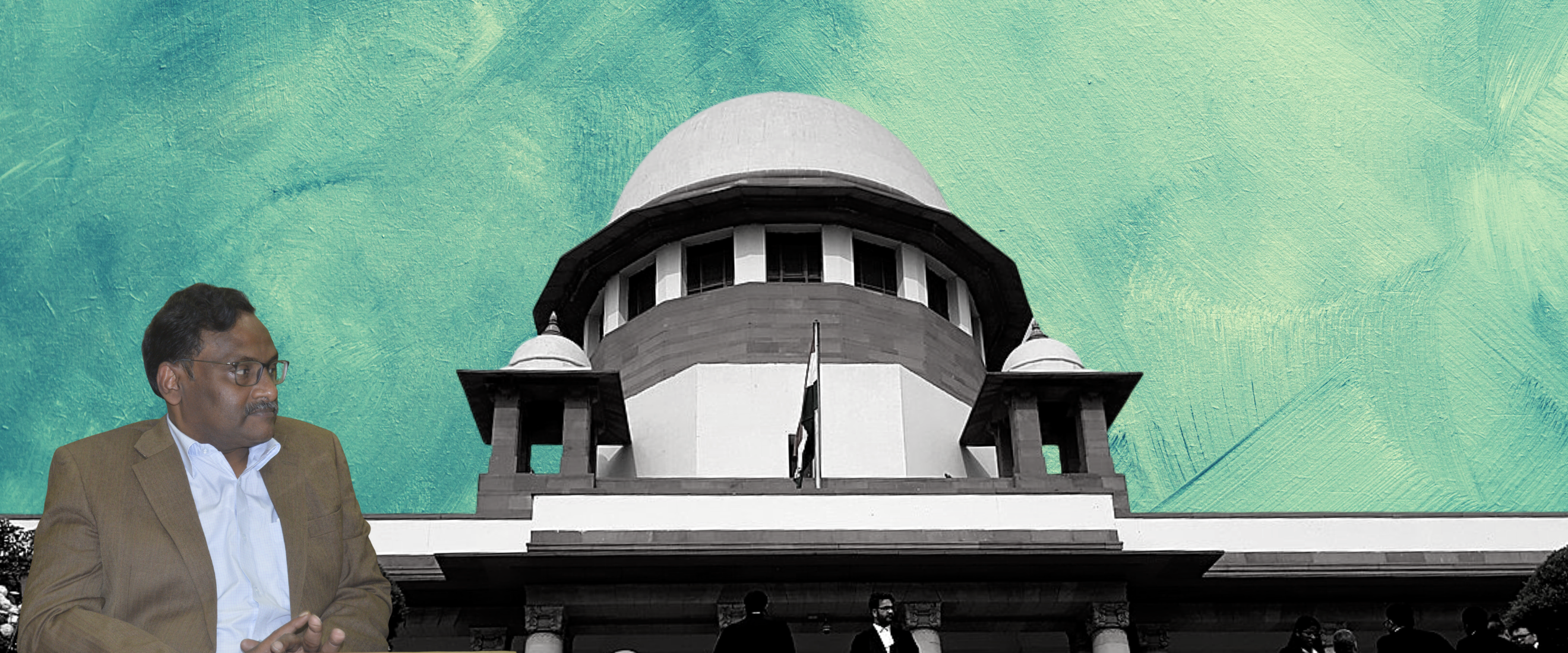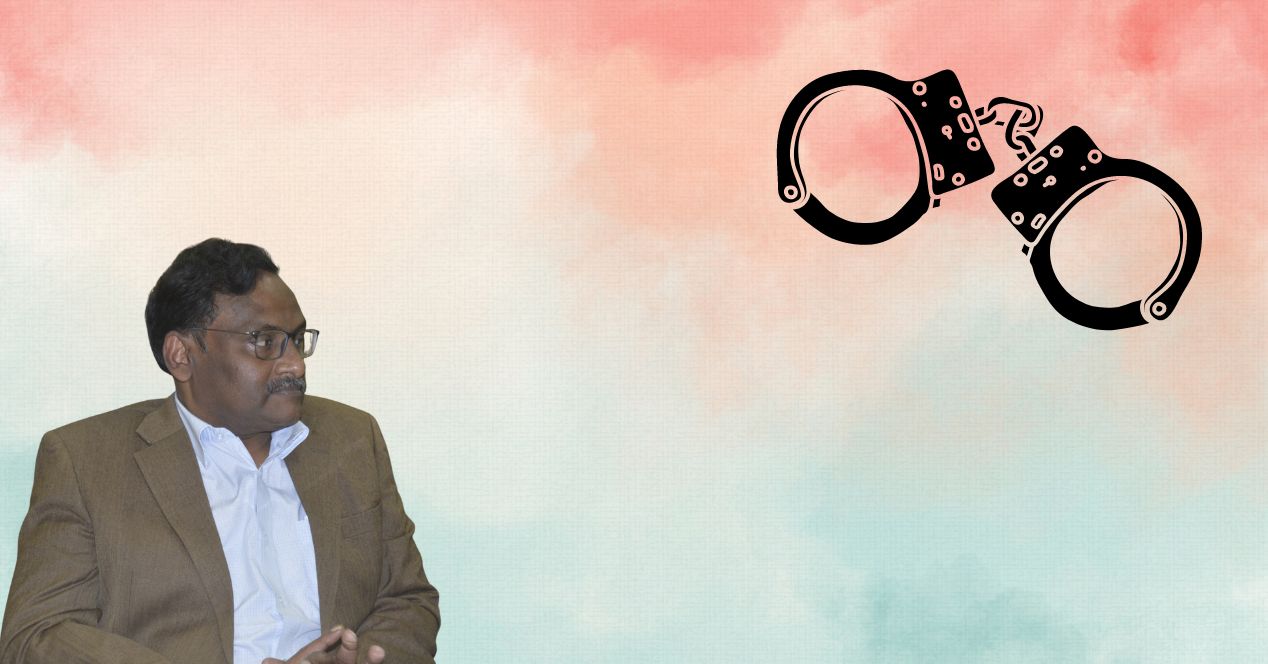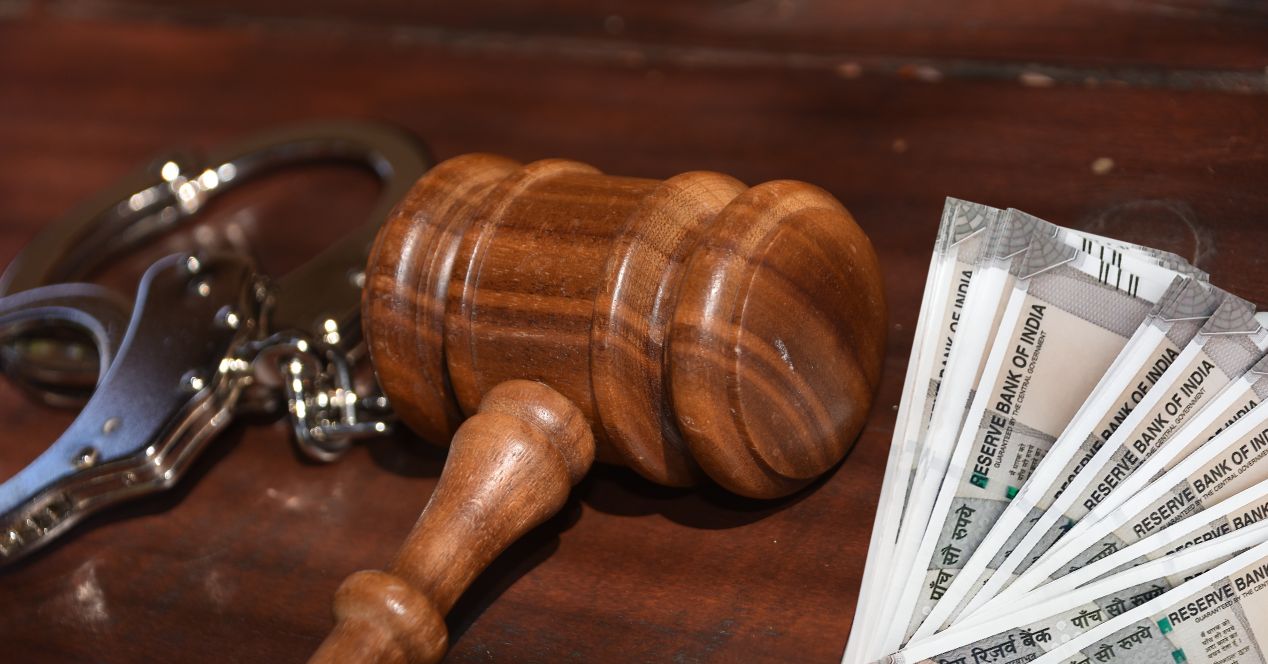Analysis
The ‘Urgency’ to Prevent Prof. Saibaba’s Release
The SC’s hurried decision to suspend Prof. Saibaba’s release contradicts its own stance upholding investigatory procedure.

In a significant departure from the norm, the Supreme Court convened urgently on Saturday to suspend the Bombay High Court’s decision which released Prof. G.N. Saibaba after seven years of imprisonment. Prof. Saibaba, an activist and scholar, was arrested on May 9th, 2014, in an alleged Maoist conspiracy case under the Unlawful Activities (Prevention) Act, 1967. The Union’s rush to challenge the High Court’s decision, less than a day later, resulted in Prof. Saibaba’s continued imprisonment.
The Bombay High Court’s decision was based on Section 45 of the UAPA which mandates Union government permission before a Court can direct the investigation of an offence under the Act. As the presumption of guilt of the accused and bail conditions under the UAPA are more stringent compared to other criminal laws in the country, the mandatory sanction serves to ensure integrity in UAPA investigations. The High Court released Prof. Saibaba because the investigation against him began without the appropriate government sanction. Departing from its own past Judgments, the Supreme Court found that the lack of sanction was irrelevant—Prof. Saibaba must stay in prison due to the serious nature of the offences he was charged with.
Background
On October 15th, 2022, a Saturday, the Supreme Court suspended the Bombay High Court’s order releasing Professor G.N. Saibaba and four others. Prof. Saibaba, a former Delhi University Professor, was arrested on May 9th, 2014, and was convicted under the Unlawful Activities (Prevention) Act, 1967, and the Indian Penal Code, 1860, on charges of terrorism and criminal conspiracy in 2017. He is accused of having ties with the Revolutionary Democratic Front, an alleged branch of the banned Communist Party of India (Maoist).
On the same day, after the Bombay High Court delivered Judgment, SG Tushar Mehta filed an appeal at the Supreme Court. Initially, Mr. Mehta wanted to request an urgent listing of the case before CJI U.U. Lalit’s Bench. Since this Bench has concluded the day’s hearings by then, Mr. Mehta mentioned the matter before a Bench led by CJI-designate D.Y. Chandrachud instead.
Justice Chandrachud refused to suspend the Bombay HC’s acquittal of Prof. Saibaba. However, at the request of the SG, he permitted Mr. Mehta to file an application for an administrative decision by CJI Lalit to hear the matter urgently on Saturday. Accordingly, CJI Lalit constituted a Special Bench comprising Justices Shah and Trivedi, the former who is not on the Court’s criminal roster, to sit on a Saturday to hear the matter.
Was the Saturday Hearing Truly Urgent?
Urgent Supreme Court hearings on a Saturday are a rare spectacle. The last time the Supreme Court convened on a Saturday for an urgent hearing was three years ago to hear sexual harassment allegations against former CJI Ranjan Gogoi. The resultant decision absolved Justice Gogoi of the allegations levelled against him. The urgency then resulted from the nature of the allegations levelled against the institutional head.
Saturday’s hearing is bizarre by all accounts. The Supreme Court Rules, 2013, does not provide an exhaustive list of cases that can be considered ‘urgent’. However, an SC Circular for Vacation Benches from May, 2022, gives us some of the criteria the Court uses to decide to urgently hear a case. Neither the Rules nor the Circular considers a challenge to the release of an individual to be a matter warranting an urgent hearing.
At best, urgent hearings allow the Court to secure the release of an individual to protect their fundamental rights. Not the other way around. Prof. Saibaba, as his counsel pointed out on Saturday, is 90% physically disabled and is suffering from post-polio paralysis among many other afflictions. His Counsel passionately pleaded with the Court to at least place him under house arrest, subject to whatever conditions the Court deemed fit. However, this was to no avail.
The Essentiality of Sanction under the UAPA
The heavily criticised Unlawful Activities (Prevention) Act, 1967, is a controversial law—it is one of the few laws that serves as an exception to the Fundamental Right to Life and Liberty. Laws such as the UAPA lay down stringent conditions for the grant of bail and the conduct of investigations as they concern offences of a serious nature.
To ensure fairness in UAPA investigations, Section 45 of the Act makes it mandatory for Courts to obtain prior sanction from the Union government. The SC has previously held that in the absence of prior sanction, the entire investigation will be considered null and void right from its inception. The Bombay High Court accordingly set aside the Judgment of the trial Court which imprisoned Prof. Saibaba and five others.
The necessity of following proper procedure in any kind of investigation is rooted in a simple, unshakeable premise—the investigation should not be compromised by the authorities tasked with upholding justice.
The Bombay HC observed that the unsanctioned investigation under the UAPA against Prof. Saibaba was ‘bad in law and invalid’. Sanction in an investigation ensures that the investigatory authorities follow the law while carrying out an investigation. Overlooking the importance of sanction, especially under a law as stringent as the UAPA, undermines the accountability of investigatory authorities and the reliability of the investigation carried out.
What Do the Supreme Court’s Earlier Decisions Say on the Importance of Sanction?
The Supreme Court’s decision hinges on a 1998 Judgment, Lal Singh v The State of Gujarat (1998), cited by SG Tushar Mehta. The argument claims that an issue of sanction cannot be argued during an appeal if it was not argued during the trial court stage—a claim contested by Prof. Saibaba’s counsel. However, Lal Singh (1998) is contradicted by Ashrafljam Alias Babu Munnekhan Pathan v State of Gujarat (2012), wherein the Supreme Court held that the absence of sanction ‘goes to the root of the matter’.
The mandatory sanction is to ensure that the investigation is carried out in a proper manner. Without sanction, the reliability of the investigation is called into question. However, the Solicitor General convinced the Bench that the issue of sanction was insufficient to acquit Prof. Saibaba in the present case.
In the Court’s own words, ‘an Act which is harsh, containing stringent provisions and prescribing procedure substantially departing from the prevalent ordinary procedural law cannot be construed liberally. For ensuring rule of law, its strict adherence has to be ensured.’ The suspension of Prof. Saibaba’s release goes against the Supreme Court’s very own reasoning highlighting the importance of an investigation’s integrity.
Any possible relief for Prof. Saibaba will only come after December 8th, 2022, when the case is listed to be heard next.




